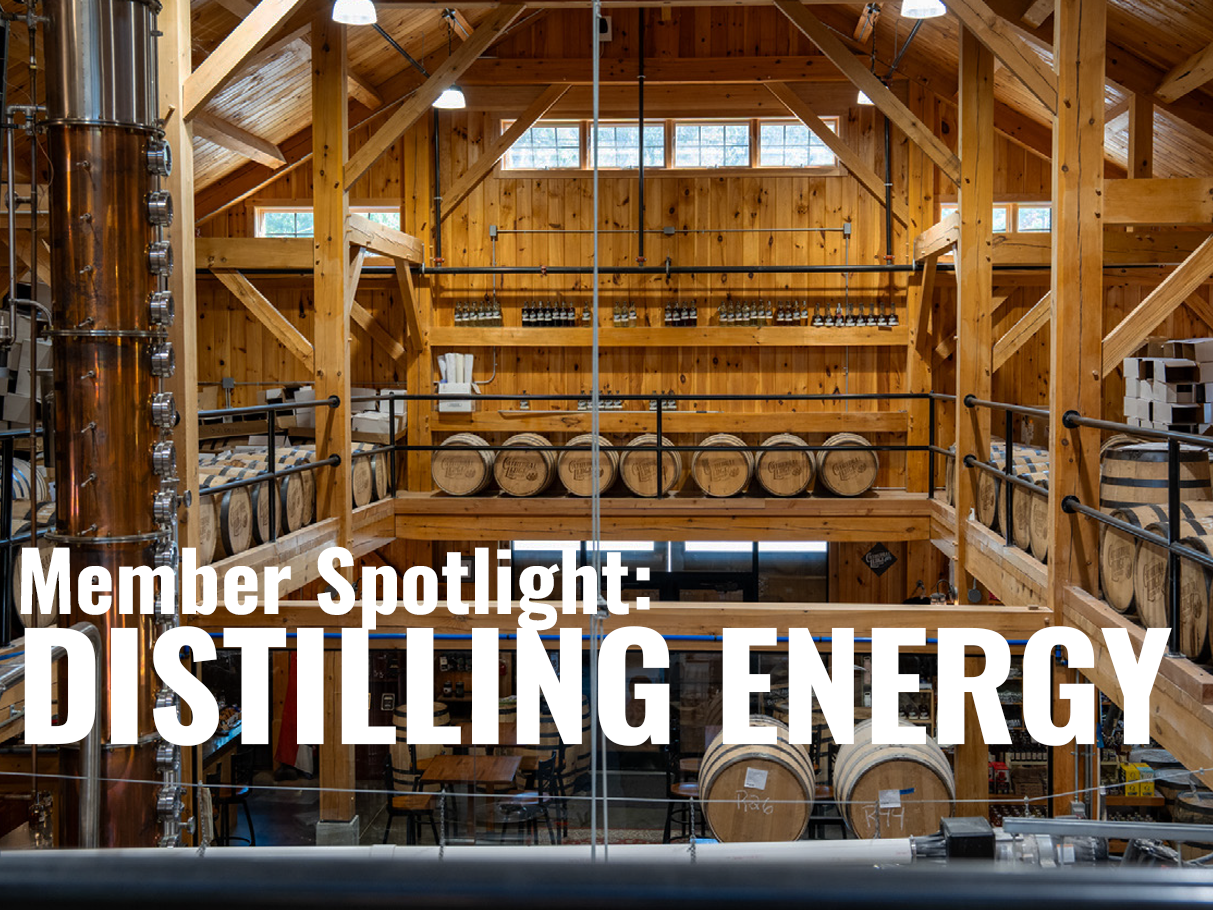There are a number of reasons to embrace energy efficiency. Maybe to save money. Or maybe, the environment. For Chris Burk, co-founder of Cathedral Ledge Distillery, it was both.
“I guess I’ve always been environmentally conscientious and that probably does come from my parents. I’m kind of a practical environmentalist. I try to reflect it in my actions and in our business decisions,” said Burk, a veteran of the finance industry, who opened the distillery with his wife in December 2020, a challenging time for any business.
Burk credits the Co-op for its assistance in a variety of ways, from help with funding options to connecting him with engineers whose expertise was significant in the building’s function.
“The Co-op is great. They’ve been very helpful in navigating the process,” Burk said. “They helped with different grants and rebates and the engineers helped finalize and fine tune our design elements and what kind of equipment to procure.”
Distilling is an intense consumer of energy. Heating and cooling of spirits all goes on in the same day. For Burk, being as efficient as possible is not only being a good steward of the environment, it also makes good business sense. Between technology like high-performance drive pumps, insulated underground tanks, and an energy-efficient boiler, and the distillery’s practices, Cathedral Ledge is sustainable and exceeds ENERGY STAR® standards.
Cathedral Ledge is also the first distillery in New Hampshire to achieve national recognition through the Better Bev craft beverage program for producers who improve energy efficiency and manufacture sustainably. The distinction involves a rigorous evaluation, including an audit of the business’s energy efficiency and sustainability on several fronts from water conservation to minimizing waste.
“Chris is very enthusiastic about his business’s environmental commitment. This enthusiasm attracts and inspires interest in sustainability. His commitment to achieving a more sustainable process can encourage other distilleries’ efforts to lower their own environmental footprint and prevent pollution,” said Ann Astarita, the Pollution Prevention Coordinator of the New Hampshire Department of Environmental Sciences, who worked with Burk throughout the vetting process.
Aside from being a pinnacle of energy efficiency, Cathedral Ledge is also USDA-certified organic and is deeply connected to its New Hampshire roots. Its building pays homage to old New England architecture, and all its distillery grains are sourced regionally from New Hampshire, Maine, and Upstate New York and are grown without GMOs, synthetic fertilizers or pesticides.
“We didn’t take all these measures to be environmentally sensitive as a marketing strategy. We did it because that’s who we are and that’s what we care about. This is a passion project,” Burk said. “We’re doing this because we want to do it. We’re focused on making premium spirits.”
Whatever your motivation is to embrace energy efficiency, the Co-op is here to help.
